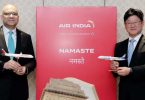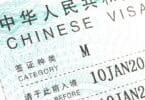With a military coup in Thailand, riots in Vietnam, and escalating tensions in the South China Sea, participants at the World Economic Forum on East Asia cautioned against the dangers of unilateral action that could undermine the region’s political and economic security.
With the global population surpassing seven billion, six out of 10 people now live in the East Asia region. With concerns over the future of food security and ownership of natural resources, fast-paced growth brings with it new security dimensions.
Speaking at the two-day meeting held in the Philippine capital, Laura Q. Del Rosario, Undersecretary, International Economic Relations, at the Philippine Department of Foreign Affairs, stressed the need for ASEAN unity.
“For ASEAN we want to encourage the major actors not to engage in unilateral actions that will create a narrower space for co-operation,” said Del Rosario, “We hope that all actors, including ourselves, can follow the norms of good behavior.” Rosario said that a common regard for international law was the best way to support confidence, transparency and ultimately, regional security.
In the face of potential regional fractures, Ruediger Frank, Department Head and Professor of East Asian Economy and Society at the University of Vienna, said that maintaining a balance of power in regional disputes such as the overlapping territorial claims in the South China Sea was critical. “What worries me is that we will see the formation of camps again,” said Frank, “And then smaller and medium-sized countries will not have the chance to independently decide what they want to do.”
To effectively negotiate future challenges, participants highlighted the need to use the existing regional and multilateral framework of ASEAN to ensure economic and political stability in East Asia. Shigeo Iwatani, Secretary-General, Trilateral Cooperation Secretariat (TCS) in Seoul, called for the region to adopt a unified set of norms and legal institutions. “My feeling is that it is about time to establish a certain solid, legally based institutional framework to talk about all these political and military issues,” he said.
Suggesting creative solutions such as a shared commercial approach to natural resources in the region, Parag Khanna, Senior Fellow, New America Foundation in Singapore, said strengthening ASEAN required more than dialogue alone. “You can talk about institutions all you want,” he said, “but you need the strategic maturity to back them.”
As one of the most militarized regions in the world and one that accounts for $1.2 trillion in two-way trade for the United States, Samuel J. Locklear III, Commander, United States Pacific Command, echoed the calls for a strengthened political framework as a key element to continued economic growth and political certainty. Inviting major players such as China and Russia into the security fold, Locklear advocated a greater push toward codified multilateralism. “For business to go on there has to be an underlying security infrastructure of some kind,” he said, “And that has to be worked pretty hard.”
The 23rd World Economic Forum on East Asia, hosted with the support of the Government of the Philippines, is taking place in Metro Manila on May 21-23, 2014. The theme of the meeting is Leveraging Growth for Equitable Progress.
The Co-chairs of the World Economic Forum on East Asia are: Yolanda Kakabadse, President, WWF International, Switzerland; Takeshi Niinami, Chairman, Lawson, Japan; Global Agenda Council on the Role of Business; Atsutoshi Nishida, Chairman of the Board, Toshiba Corporation, Japan; James T. Riady, Chief Executive Officer, Lippo Group, Indonesia.





















